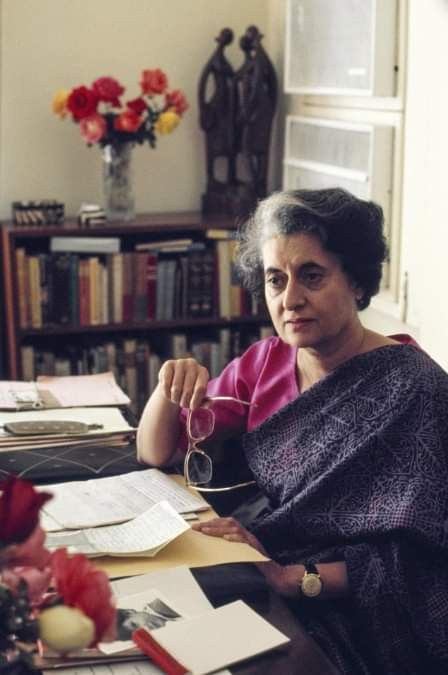Indira Gandhis: A Visionary Leader Who Shaped India’s Future
Indira Gandhis, the first and only female Prime Minister of India, is a name that remains synonymous with political strength, determination, and unwavering commitment to her country. Born on November 19, 1917, in Allahabad, India, to Jawaharlal Nehru, the first Prime Minister of India, and Kamala Nehru, Indira was raised in an environment that fostered a sense of responsibility toward her nation. Throughout her life, she made significant contributions to India’s political landscape, leading the country through numerous challenges, from the 1971 India-Pakistan war to the 1975 Emergency.
Early Life and Education of Indira Gandhis
Indira Priyadarshini Gandhi’s early life was marked by exposure to India’s political environment. Raised in a political family, she was surrounded by leaders and intellectuals who had a profound impact on her life. She attended schools in India and later studied at the University of Oxford in the United Kingdom, where she graduated with a degree in history. Her time at Oxford gave her a global perspective, and her early experiences helped shape her thoughts on leadership and governance.
After completing her education, Indira Gandhi became deeply involved in the Indian freedom struggle alongside her father and other political leaders. She traveled to different parts of India and the world, learning firsthand about the challenges faced by the common people, particularly the poor and marginalized.
Rise to Power: The Path of Indira Gandhis Leadership
Indira Gandhi’s political career was defined by her resilience, intelligence, and ability to make decisive choices. After the death of her father, Jawaharlal Nehru, in 1964, Lal Bahadur Shastri became the Prime Minister. However, after Shastri’s sudden death in 1966, Indira Gandhi, a relatively unknown figure in national politics, rose to prominence and was appointed as the Prime Minister of India.
Her leadership was initially met with skepticism, but she soon proved herself with her firm stance on economic reforms, national security, and the promotion of science and technology. One of her most significant achievements during her tenure as Prime Minister was her leadership during the 1971 Indo-Pakistani War, which resulted in the creation of Bangladesh. Her decisive actions on the global stage earned her international recognition and admiration.
The 1975 Emergency and Indira Gandhis Political Impact
One of the most controversial and defining moments of Indira Gandhi’s political career came with the declaration of a national emergency in 1975. Facing political instability, mass protests, and growing opposition, she declared a state of emergency, which gave her sweeping powers to govern the country without the usual checks and balances. During this period, civil liberties were suspended, opposition leaders were imprisoned, and media censorship was enforced.
While the Emergency remains a highly debated chapter in Indian history, it had lasting impacts on both Indian politics and Indira Gandhi’s political legacy. After the Emergency was lifted in 1977, Indira Gandhi faced political backlash, and her Congress party lost power. However, she made a remarkable comeback in 1980, winning the general elections and returning to power.
Indira Gandhis Daily Life and Leadership Style
Indira Gandhi was known for her strong work ethic and commitment to the nation. Her daily life as Prime Minister was filled with meetings, policy decisions, and correspondence. She was a hands-on leader who preferred to be deeply involved in all matters, whether it was domestic policy or international diplomacy. Known for her stern personality, Indira Gandhi was also a compassionate leader who deeply cared about the welfare of India’s common people.
She was committed to modernizing India, focusing on infrastructure, green revolution (agricultural reforms), and self-sufficiency. Despite the challenges she faced, Indira Gandhi led the country through difficult economic and political landscapes, making her one of the most admired leaders in India.
Her leadership was often characterized by her calm and unshakable demeanor in the face of adversity, yet she was not afraid to make bold decisions when necessary. Indira was known for her decisiveness, sometimes making tough choices without consulting others, which earned her both respect and criticism.
Indira Gandhis Significance and Contributions to Society
Indira Gandhi’s political journey significantly impacted India’s political landscape and its global standing. As the first female Prime Minister of India, she broke societal norms and proved that a woman could lead a nation with authority and resilience. She promoted women’s empowerment and fought for policies that benefited the underprivileged and rural populations.
Under her leadership, India made significant strides in several areas:
- Economic and Industrial Growth:
Indira Gandhi’s government focused on economic self-sufficiency and launched major industrial projects to promote growth. She was instrumental in the Green Revolution, which made India self-sufficient in food production, transforming the country into a food exporter. - Social Welfare and Education:
She introduced policies to alleviate poverty and improve the quality of education. Programs like the Midday Meal Scheme were aimed at improving literacy rates and supporting marginalized communities. - Foreign Policy and International Relations:
Indira Gandhi was known for her assertive foreign policy. She played a key role in India’s stance against apartheid in South Africa and established strong ties with the Soviet Union. Her leadership in the 1971 war with Pakistan resulted in the creation of Bangladesh, which was seen as a major victory for India. - Commitment to National Security:
Indira Gandhi placed significant emphasis on India’s national security. She oversaw the successful nuclear tests in 1974, making India a nuclear power. Her stance on military and defense matters was robust and forward-thinking.
Indira Gandhis Legacy
Indira Gandhi’s legacy continues to inspire leaders and citizens worldwide. She is often remembered as a leader who, despite numerous challenges, steered India towards becoming a global power. While her tenure included both praise and controversy, her role in shaping India’s modern identity cannot be denied.
In India, she remains an iconic figure of strength, leadership, and determination. The India that Indira Gandhi envisioned—self-sufficient, strong, and progressive—is still a major influence in the country’s modern-day policies. Her tragic assassination in 1984 was a profound loss for India, but her contributions continue to live on in the nation’s collective memory.
FAQs about Indira Gandhis
Q: Why was Indira Gandhi called the “Iron Lady of India”?
A: Indira Gandhis was called the “Iron Lady of India” because of her tough, unyielding leadership style and her ability to make bold decisions in difficult situations.
Q: What were Indira Gandhi’s major achievements?
A: Indira Gandhis major achievements include the Green Revolution, India’s nuclear tests in 1974, the creation of Bangladesh, and her contributions to industrial and economic growth in India.
Q: What was the 1975 Emergency, and why was it declared?
A: The 1975 Emergency was declared by Indira Gandhis to quell political instability, mass protests, and allegations of corruption against her. It resulted in the suspension of civil liberties and the imprisonment of political opponents.
Q: How did Indira Gandhi impact women’s rights in India?
A: Indira Gandhis broke gender barriers by becoming the first female Prime Minister of India. She promoted policies that improved the welfare of women and worked to improve their status in society.
Conclusion: Why Indira Gandhis is Important to Society
Indira Gandhis was more than just a political leader; she was a trailblazer who reshaped India’s future through her visionary leadership. Her ability to lead the country through turbulent times, her bold decisions, and her commitment to India’s growth made her one of the most influential figures in Indian history.
Her legacy continues to inspire people worldwide, especially women, showing them that leadership is not defined by gender but by strength, vision, and courage. Indira Gandhi’s life and career serve as a reminder of what is possible when one is determined to serve their nation, regardless of the challenges ahead.










